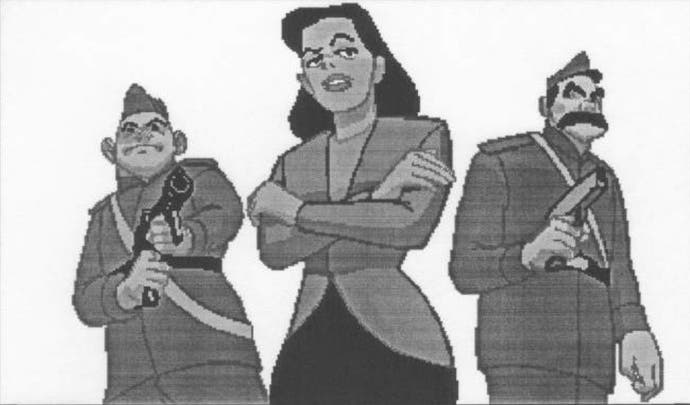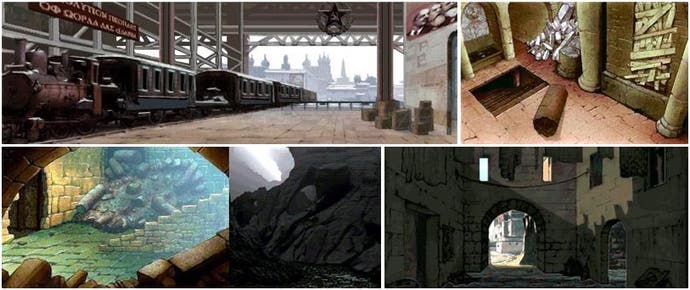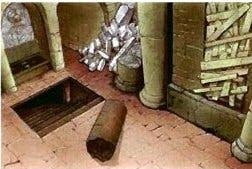Indiana Jones and the Fate of Atlantis' cancelled sequel detailed
It belongs in a museum!
Lucasarts' seminal 1992 point-and-click adventure classic Indiana Jones and the Fate of Atlantis nearly received a sequel before being consigned to the grave.

As detailed by The International House of Mojo, Lucasarts was waist deep into production on a follow-up Indiana Jones adventure. Dubbed Indiana Jones and the Iron Phoenix, the game was to be set in 1947 as Indy races Nazis to find the Philosopher's Stone (before Harry Potter was created, mind) that could be used to resurrect Hitler. The full game would have featured Indy searching for three pieces of the Philosopher's Stone with a finale set in South America.
Originally this sequel was going to be headed by Joe Pinney, who later migrated to Telltale where he helmed Tales of Monkey Island, Sam & Max: The Devil's Playhouse and Jurassic Park: The Game. Later Lucasarts veteran Aric Wilmunder was put in charge with background artist Bill Stoneham.

Regrettably, the project fell into development hell as its staff kept getting shifted around to focus on other projects and not all of the technological advancements Lucasarts was working on at the time panned out. At one point the developer even considered going the live-action route and filmed scenes that were to be transposed atop illustrated backgrounds.
Another problem was that the game contained too much Nazi imagery to be sold in Germany. Around that time Nazi symbols like swastikas were forbidden from being used in merchandise, though these were considered fair use for historical or artistic uses. Unfortunately, Germany considered video games toys, making them subject to the ban.
This was a big problem as the German market was even more lucrative than the domestic one for the US company. In fact, Lucasarts relied on European sales to break even on some of its biggest hits like The Secret of Monkey Island. In Fate of Atlantis the developer changed some of the Nazi imagery to crosses, but for a game specifically about the resurrection of the Third Reich following World War II, it seemed impossible to avoid the banned material.
After just over a year of development, Indiana Jones and the Iron Phoenix was shuttered for good.

However, it ended up surviving in some form as Dark Horse released a three-issue comic series based on Lucasarts' tale, though Wilmunder wasn't fond of the adaptation.
"The first three issues of the Dark Horse Iron Phoenix comic were based on my designs. Unfortunately in the last issue the went all zombie-nazi on the story.... literally," he said of this comic series. "They also took one of my characters, Colette, who in my design was styled after the head of our art department, a lovely lady, and turned the comic version into a bit of a hag."
In the end, Wilmunder was okay with the game's cancelation. "In some respects I wasn't upset, just disappointed. I would rather not build a product, than to build a bad product. I had spent years working with teams building great products, and I wanted nothing to do with a game that was a step backwards," the former project lead said.
"I hate to say that I agree with management. Bill and I may have forced the decision since we both thought that the situation we were put into was not going to lead to a successful outcome. Management either needed to commit or close it down. "
For more on Indiana Jones and the Iron Phoenix, Wilmunder recently published a 67-page design document on it.

